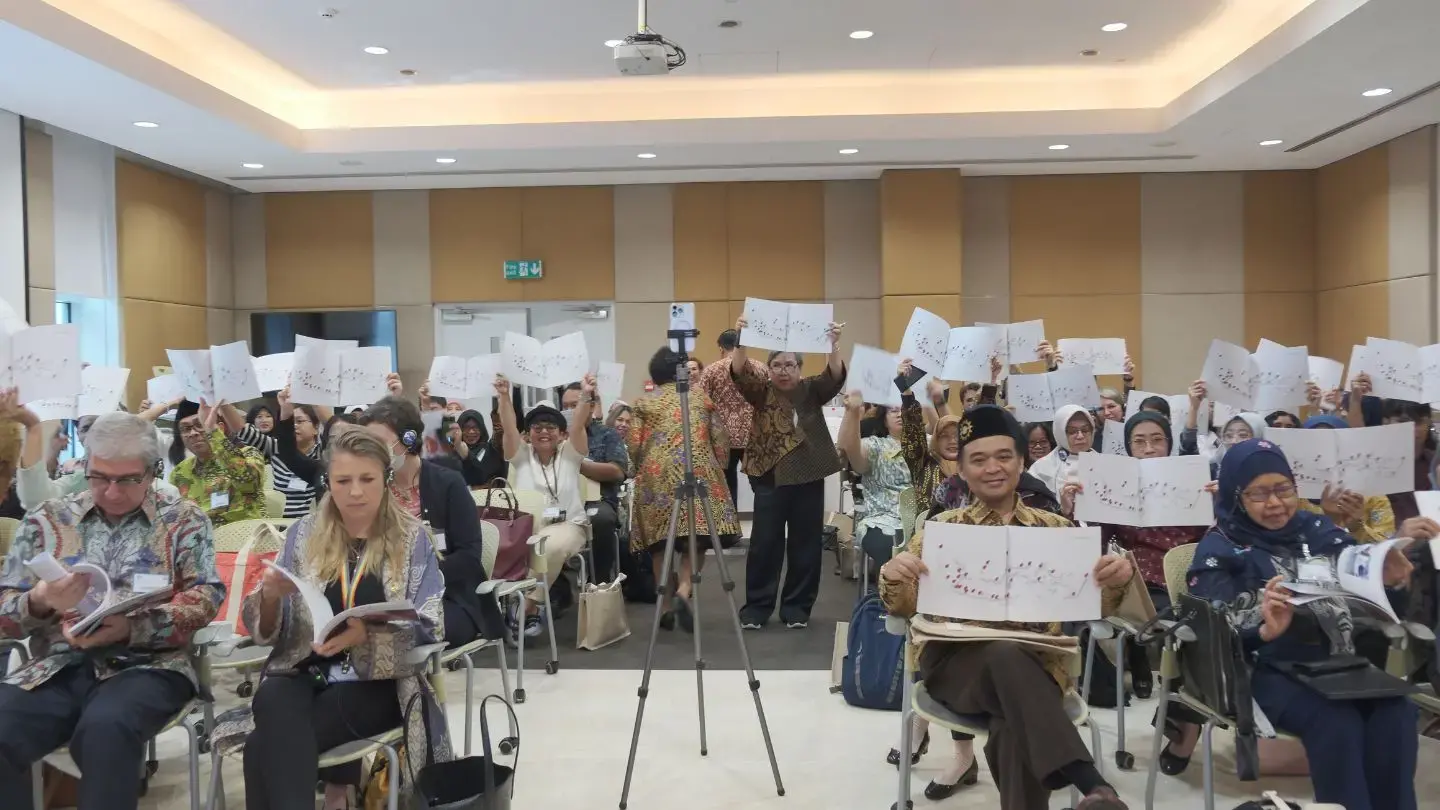The National Population and Family Planning Board (BKKBN) and UNFPA, the United Nations Population Fund, have collaborated to conduct Training on Developing Strategic Partnership with Faith-Based Organization (FBOs) and Religious Leaders on Population, Family Planning, Reproductive Health and Gender Programmes.
This initiative is the first of two global training programmes organized by BKKBN and UNFPA in Indonesia for the purposes of sharing best practices through South-South Cooperation (SSC). The second training programme, on comprehensive family planning, will be conducted in collaboration with Gadjah Mada University, Yogyakarta, in 2014.
A total of 21 participants from 6 countries (Bangladesh, India, Maldives, Philippines, Sudan and Nigeria) attended the first training course, held on 18-25 November.
The SSC training program includes both theoretical learning and field visits. The lectures were interactive and participatory to allow for exchange of experience combining both religious points of view and scientific information.
Indonesia’s successful family planning programme has been recognized around the world. Since the programme was initiated in the early 1970s, the total fertility rate (TFR) in the country has declined from 5.6 children per woman in the 1960s to currently around 2.4. One of the factors credited with the success of the program is the participation of community leaders in the country, including formal, informal and religious leaders.
Mr. Jose Ferraris, UNFPA Representative in Indonesia, said “Around the world, as is the case here in Indonesia, there are significant cultural challenges surrounding family planning, reproductive health and gender programmes. This reality means that governments, development agencies and civil society cannot implement effective and necessary change without wider community support.”
Strategic partnership between the Government and community leaders in Indonesia meant that the endorsement of influential religious leaders to new ideas about population, family planning, reproductive health, and gender has helped communities accept and adopt new policies.
During the training course, Indonesian FBOs such as Muhammadiyah and Nahdatul Ulama presented on their approaches to the issues addressed. The field visits in Yogyakarta and input from grass-roots level resource persons and religious leaders proved very useful and successful to share ideas and strategies about developing strategic partnerships with FBOs.
As part of the training course, the participants developed country action plans to use the new strategies in their home countries for the purposes of gaining community support for important population, family planning, reproductive health and gender programmes.
Tags: reproductive health, family planning



